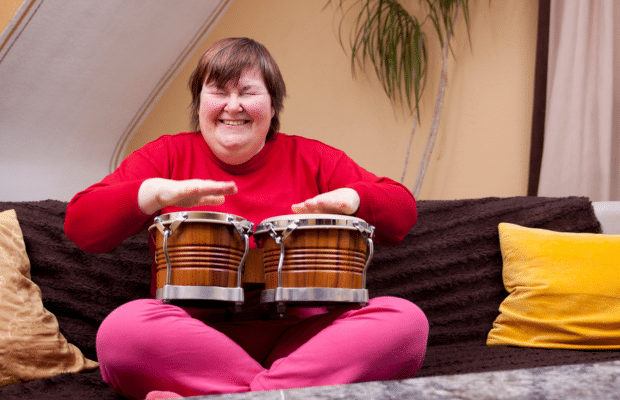Late last year, the NDIA caused a bit of a debacle when it announced plans to change the pricing structure for art and music therapy. If the changes had gone ahead, the price limit for these supports would have decreased from $193.99 to $67.56 per hour.
This news led to a significant backlash from art and music therapists, people with disability who use these supports and their families. In response, the NDIA commissioned an independent review into the pricing of art and music therapy.
There will be no change to the price limits of art and music therapy until the after the outcome of the review.
Music therapy is still being recognised by the NDIS for inclusion in plans under the support cluster of Therapeutic Supports.
In this resource we will cover:
- language and communication,
- personal care,
- mobility and movement,
- interpersonal interactions,
- community living to support positive changes in the person’s functioning, development and well-being.
Who can deliver music therapy support?
It can be delivered by registered Music Therapists (who must have a post-graduate degree) and they must be a member of the AMTA (Australian Music Therapy Association) – this is one thing the NDIS Commission has stated as a requirement.
Be wary of individuals claiming to be music therapists – you can search the AMTA Directory by name to make sure they are registered.
You cannot use your NDIS funds for music therapy with someone who is not a registered therapist.
- Is music an important part of your life?
- Would you like to share your music time with other people?
- Would you like to explore ways to express yourself more?
- Could playing music with other people help you feel better?
These are areas and goals that music therapy can assist you with, and help you expand your horizons in life, increase your independence and meet new people
- To give me opportunities to meet people and make friends
- To increase my social skills
- To help me express my feelings, control my emptions and feel happy
- To encourage me to speak using song
- To maintain or improve mobility, communication and/or cognitive processing
- To improve my social interaction with others and learn appropriate behaviour in groups.
- Build my self esteem confidence.
- Is music an important part of your life?
- Improved Daily Living Skills – 15_615_0128_1_3 (Assessment Recommendation Therapy or Training – Music Therapist)
How much can my music therapist charge me?
To see the latest NDIS price for Exercise Physiologist – go to our NDIS Price Search tool and type in ‘Music Therapist).
If you are getting supports in your home and the therapist has to travel to you, they may also charge you for travel time & distance so make sure you discuss this withy our therapist BEFORE you start your therapy sessions



